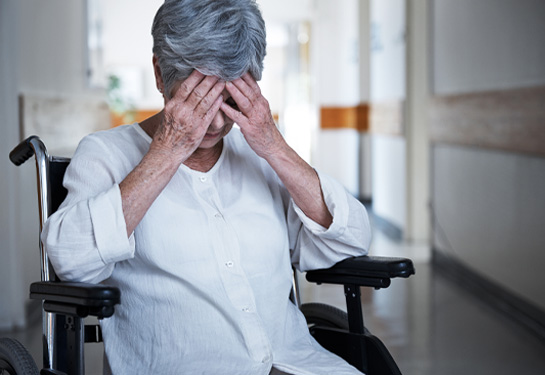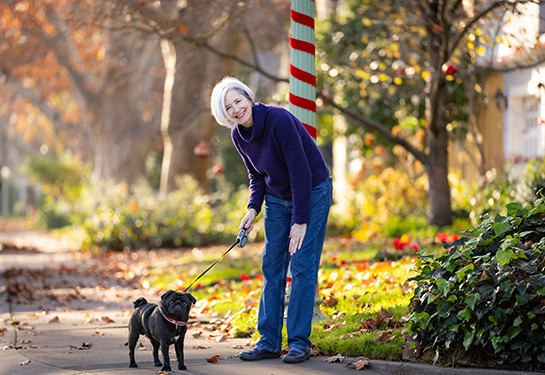Most caregivers are ill-prepared for their own hospitalization
Research finds caregivers undergo stress and worry when they’re unexpectedly hospitalized
Caring for a loved one with dementia can be incredibly challenging, especially for spouses who often take on the role of primary caregiver. When these caregivers themselves are hospitalized, they undergo stress and their caregiving role is disrupted. New research, recently published in The Gerontologist, aims to understand what it’s like when the caregiver becomes the patient.
The study is co-authored by Rebecca Boxer, chief of the Division of Geriatrics, Hospice and Palliative Medicine at UC Davis Health. Researchers surveyed 509 caregivers of spouses with dementia about their preparedness for their own hospital care. When caregivers were asked about an unexpected hospitalization in the future, 52% felt only somewhat prepared and 29% felt not at all prepared for their own care.
In addition, many caregivers had not made plans for their loved one’s care in case they were unexpectedly absent. In fact, if caregivers were suddenly hospitalized, 48% of them were only somewhat confident and 14% indicated they were not at all confident that their loved one with dementia would receive adequate care.
“Caring for the caregiver is of key importance to both the spousal caregiver and partner with demetia. I encourage caregivers to tell their health care team about their caregiving role and how it impacts their ability to keep themselves healthy,” Boxer said. “Caregivers can postpone attending to their own health care needs and hence are at risk for a health care crisis.”
Further in-depth interviews were conducted with 18 caregivers to understand their experiences during different phases, including their spouse's dementia diagnosis, progression, their own health events, hospitalization and return home. The interviews revealed three groups of caregivers:
- Those who experienced lower stress in the hospital, since they viewed their stay as a “break” or “relief” from their caregiving duties
- Those who felt highest stress while in the hospital, due to worrying about their spouse and their care
- Those who sustained high stress levels regardless of being in the hospital
Overall, this study highlights the need to support caregivers, especially during times of their own health crises. Caregivers need tailored support to navigate the challenges of hospitalization while ensuring their loved ones receive the care they need.
To help support caregivers, the UC Davis Health Healthy Aging Clinic offers caregiver consultations for caregivers of clinic patients. Awarded age-friendly designation, the clinic features a multispecialty team of providers committed to the health and well-being of older adults.
“Our goal is that these consultations will enhance the caregiver's sense of confidence and competence in caring for the older adult, which can alleviate stress for the caregiver and assist in improving care,” said Anna Satake, a geriatric clinical nurse specialist who leads the service and an assistant professor at the Betty Irene Moore School of Nursing at UC Davis.




